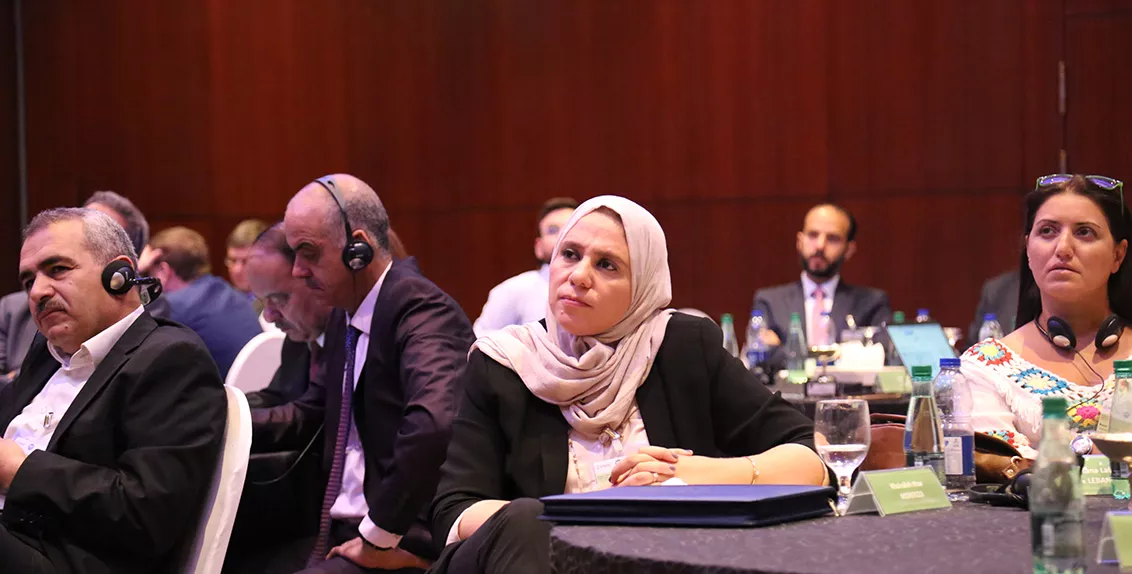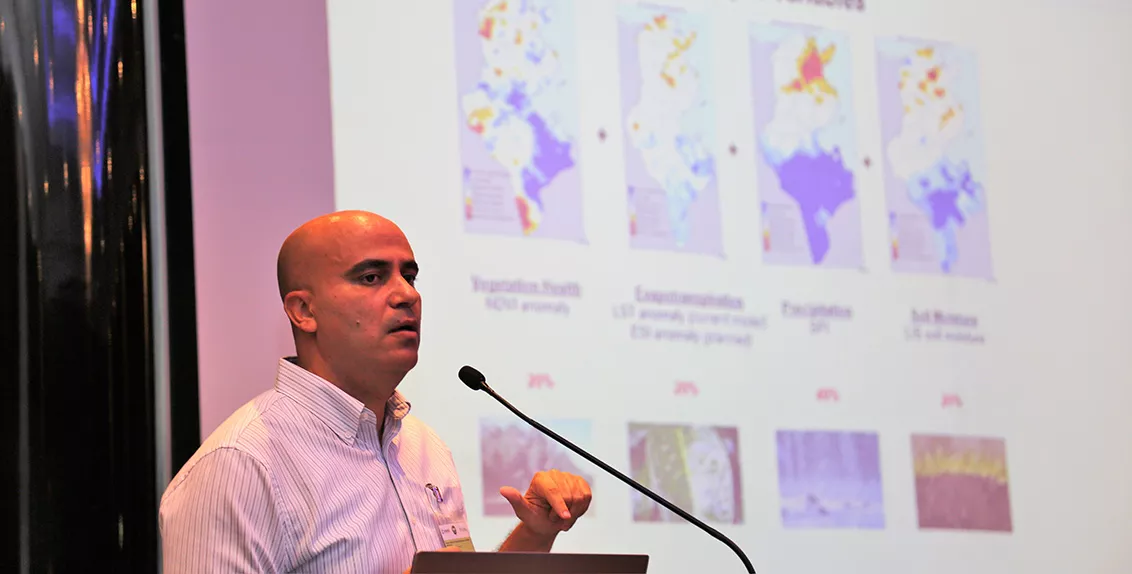Global policy forum mulls how data can prop up drought mitigation
26 September 2018
Around 40 leading experts from more than 10 countries, including the Czech Republic, Jordan, Lebanon, Mexico, Morocco, South Africa, Tunisia, the UAE and the USA have urged policymakers and governments to speed up development of climate change adaptation strategies to ward off growing risks like drought to food and water security.
The experts convened in Dubai, UAE, on 25-26 September 2018 at an international policy workshop, which was organized by the United States Agency for International Development (USAID), the International Center for Biosaline Agriculture (ICBA), and the National Drought Mitigation Center (NDMC) of the University of Nebraska - Lincoln, USA.
As climate change-induced droughts are becoming more frequent and severe, especially in regions like the Middle East and North Africa (MENA), the workshop looked at how various initiatives such as the ICBA-led project “Regional Drought Management System for Middle East & North Africa (MENA-RDMS)” can help to better respond to droughts and lessen their impacts.
The workshop was designed to facilitate cross-country learning on drought management from countries in the MENA region where the project had been implemented, as well as other countries where drought is a persistent threat.
Participants discussed, among other things, drought monitoring development and validation of results, vulnerability and impact assessment results and how they could be used in policy development and planning, as well as shared ideas on going forward with planning and policy-making.
Experts from Jordan, Lebanon, Morocco and Tunisia presented drought monitoring validation results for their respective countries. For the past several years, in collaboration with national governments and organizations such as USAID, the Food and Agriculture Organization of the United Nations (FAO), and NDMC, ICBA’s climate modeling scientists have been providing hands-on training in these countries on how to create drought maps through an operational drought monitoring system. As a result, the local specialists have been able to successfully monitor the severity and location of droughts, helping local authorities to better plan and manage water resources and other drought-related problems.
Speaking at the event, Dr. Ismahane Elouafi, Director General of ICBA, said: “MENA-RDMS is one of the key projects at ICBA. Our region is a drought-prone region; it is a region which has suffered droughts for over 50 years and climate change impact is getting more severe. As part of our mandate as a public international research-for-development institution to improve agriculture in marginal environments, we aim to empower policy-makers in the region through robust drought management programs that will allow them to plan for and manage the impacts of droughts on food and water security.”
One of the main presentations during the workshop was about the recent water crises in Cape Town, South Africa. Dr. Kevin Winter, a senior lecturer at the Environmental and Geographical Science Department, the University of Cape Town, said of this: “A city without water is a catastrophe; we need to adapt much faster to the drivers of change. We need to invest in water; demand management is a top priority. Our experience of drought in Cape Town shows that it is rapid and unpredictable. We have just been through a drought that has probably a chance of happening once in 350 years; it is very difficult to predict.”
“Mapping the drought through a particular framework and set of indicators is the first stage of building a comprehensive picture, because it needs to be operated and applied at a particular scale and it is also helping to refine the indications of factors that are causing drought in regions like the MENA. Information which is properly analyzed becomes crucial to building policy and building wisdom at the same time,” added Dr. Kevin Winter.
For his part, Dr. Rene Lobato Sanchez, a scientist at the Mexican Institute of Water Technology, who spoke about the successes and lessons learned on drought management in Mexico, said: “In Mexico, drought is a big issue! Droughts have moved societies in and around. There is evidence that civilizations have disappeared because of droughts. So drought for us is a big concern especially because when droughts become longer, they affect the society by leading to migrations, starvations, and change in ecosystems. This workshop is very important as I am meeting experts from the MENA region. We are trying to see how drought behaves and how we can create drought maps through drought monitoring systems. It gives us at least the initial inputs on how to respond to droughts. Based on the data, we can go to policy-makers and work with them and make decisions, such as how to ensure the least impact of drought on the population.”
Speaking about the partnership with ICBA, Dr. Mark Svoboda, Director and Research Associate Professor at NDMC, said: “It has been a great opportunity to utilize the expertise of ICBA’s team in the MENA region to help us to work in these countries. It has really been a great experience and we look forward to working with ICBA down the road. Part of the strategy of this project and particularly this workshop is about transitioning from the collection of data, the information from the early-warning system, and the ‘now what’ moment. This means how we use this information in decision-making and how we integrate it into policy-making and planning and what sort of mitigation measures we can take that can reduce the impact of drought.”
While addressing the participants, Dr. Rachael McDonnell, a principal scientist in water governance and policy at ICBA, highlighted the accomplishments of the MENA-RDMS project. Dr. Rachael McDonnell thanked partners, particularly local governments, USAID and NDMC for their generous support to the project.
ICBA has been leading the MENA-RDMS project since 2015. The main aim of the center’s climate change work is to develop new insight into the possible impacts of climate change on water and food security, particularly in areas that are currently or likely to be become marginal, and to develop innovative adaptation policy, technical and information solutions.












